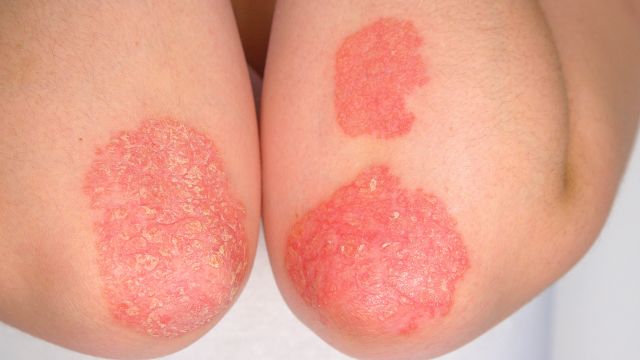Psoriasis is an inflammatory skin disorder that comes in a number of varieties and can cause a number of symptoms.
The most common form is plaque psoriasis, which causes patches of thickened, inflamed skin called plaques. Plaques are described as having a scaled and silvery appearance. In addition to the physical discomfort resulting from these symptoms, many people with psoriasis struggle with the mental distress and stigma of having a skin condition.
While there are numerous psoriasis treatments available, finding a treatment that works can be challenging. A therapy that works for one person may not work for another. If you have psoriasis, it’s important to work with a healthcare provider to find a treatment approach that works for you.
If your psoriasis treatment is not working, here are different approaches to treatment that you might discuss with your healthcare provider:
Topical therapies
Topical therapies are applied directly to the skin. Nearly all patients with psoriasis will utilize some sort of topical therapy to manage the condition at some point. These may include:
- Over-the-counter moisturizers
- Topical corticosteroids
- Coal tar
- Salicylic acid
- Topical treatments made from vitamin D
- Some topical medicines that are also used to treat eczema
For people with mild psoriasis, a topical treatment may be all that is needed to keep symptoms under control. In cases of moderate or severe psoriasis, a topical treatment may not be enough, and a healthcare provider may recommend additional treatment options, such as a systemic therapy or phototherapy.
Systemic therapy
Systemic therapies work on the entire body, and are taken as pills or injections. There are several different types that are indicated for the treatment of psoriasis:
- Immunosuppressant drugs. While the exact cause of psoriasis is unknown, it is known that abnormal immune activity plays a significant role. These drugs suppress the immune system to prevent the abnormal immune activity that causes psoriasis symptoms.
- Biologic therapies and biosimilars. These drugs modify how the immune system works. They are different from immunosuppressant drugs, which work on the entire immune system. Instead, biologics and biosimilars target only specific elements of the immune system. These medications are taken by injection or infusion.
- Retinoids. These drugs are derived from vitamin A and help regulate the lifecycle of skin cells.
- PDE4 inhibitor. This drug reduces inflammation by reducing the production of inflammatory enzymes called phosphodiesterase 4.
- JAK inhibitors. JAK stands for janus kinase enzymes, a type of enzyme that is part of the inflammatory pathway. Blocking this enzyme disrupts this pathway and reduces inflammation. These medications are taken as pills.
Phototherapy
Phototherapy involves exposure to artificial UV light or natural sunlight, which can help regulate the lifecycle of skin cells. Phototherapy must be carefully monitored by a healthcare provider, as overexposure can damage the skin. The use of tanning beds is strongly discouraged.
Talking to your healthcare provider
It's important to know that treatments for psoriasis come with a risk of side effects. Not every therapy is safe for every person. Deciding what therapy to use involves weighing the risks and potential benefits, and therapies must always be used under the guidance of a healthcare provider.





